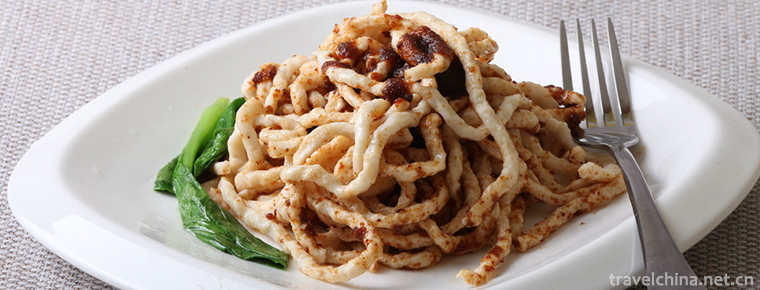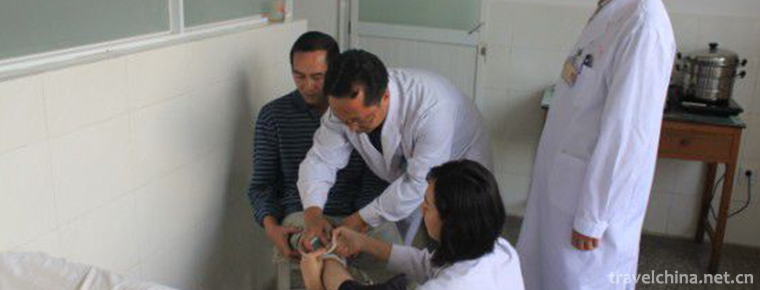2018-11-01

- By ChinaWiki.net
- Chinese Edition
- 2020-12-14
Natural resources of Panzhihua
water resource
Panzhihua is rich in hydropower resources, with theoretical reserves of more than 6.879 million kilowatts and exploitable capacity of 5.994 million kilowatts. The distribution of hydropower resources in Panzhihua area is concentrated, mainly distributed in the Jinsha River and Yalong River, as well as the tributaries of Anning River, Yongxing River and Tengqiao river.
plant resources
There are more than 2300 species, 900 genera and 190 families of wild plants in Panzhihua City. Among them, there are 546 species, 372 genera and 130 families of wild plant resources in Renhe district. They include: pteridophytes, 9 families, 13 genera, 24 species (including 2 varieties); gymnosperms, 4 families, 5 genera, 9 species (including 1 variety); 105 families, 306 genera, 453 species of dicotyledons (including 18 varieties and 3 subspecies); 12 families, 48 genera, 60 species (including 4 varieties) of monocotyledons. There are 10 species of rare plants: Cycas Panzhihua, Tilia, ginkgo, catalpa, cinnamon, Dechang fir (middlewood), Eucommia ulmoides, Gastrodia elata, Magnolia officinalis and nanmu. Among them, Cycas Panzhihua and Eucommia ulmoides are grade 2 protected plants, accounting for 6.45% of the 31 species in Sichuan Province. Dechang fir, Gastrodia elata, catalpa, Magnolia officinalis and Phoebe nanmu are three national protected plants.
Animal resources
Panzhihua City is very rich in wildlife resources, and there are many species. There are 287 species (including subspecies) of wild vertebrates in Sichuan Province, accounting for 22.21% of the total animal species (including subspecies) in Sichuan Province, while the urban area is less than 2% of the total area of Sichuan Province. Among them, there are 158 species of wild economic animals, including 7 orders, 12 families, 25 species and 4 subspecies of mammalia; 6 orders, 26 families, 30 species, 38 subspecies of ornitha; 3 orders, 5 families, 9 species of Reptilia; 1 order, 4 families, 7 species of amphibia; 45 species of 14 families, 4 orders of fishes. There are 19 species of rare wild animals under state protection in Sichuan Province, accounting for 32.20% of 59 species of rare wild animals under state protection in Sichuan Province, and 4 species of raptors, accounting for 10.81% of 37 species of raptors in Sichuan Province.
mineral resources
Panzhihua City has 7.18 billion tons of proven iron ore (mainly vanadium titanium magnetite), accounting for 72.3% of the proven iron ore resources in Sichuan Province, and is one of the four major iron ore areas in China; the reserves of associated titanium resources account for 93% of the country, ranking the first in the world; the reserves of associated vanadium resources account for 63% of the country, ranking the third in the world. The proven reserves of graphite resources are the third in China. After years of development and utilization, the city has 6.64 billion tons of vanadium titanomagnetite resources, including 430 million tons of associated titanium ore and 10.203 million tons of associated vanadium ore; the identified reserves of cobalt are 27000 tons, in addition, there are chromium, gallium, scandium, nickel, copper, lead, zinc, manganese, platinum and other rare and precious metals; among non-metallic minerals, coal reserves are 340 million tons, and crystalline graphite reserves are reserves There are 15.552 million tons, 20.775 million tons in Juque stone, 340 million tons in solvent limestone, 47.435 million tons in metallurgical dolomite, 12.098 million tons in refractory clay, 13.556 million tons in diatomite and 81.2 million cubic meters in granite.
population
By the end of 2018, the total household population of Panzhihua was 1 million 83 thousand and 400, of which 523 thousand were agricultural population and 560 thousand and 400 were non agricultural population. There were 10916 births and 6612 deaths in that year, with a natural growth rate of 3.98 ‰. At the end of the year, there were 1.236 million permanent residents, and the urbanization rate was 66.59%, 0.6 percentage points higher than that of the previous year. 8127 couples were registered for marriage and 4177 for divorce.
There are 42 ethnic groups in the city, of which the Han nationality accounts for 86.6% of the city's population. Among the 41 ethnic minorities, Yi people account for 8.89%, followed by Lisu, Miao, Naxi, Bai, Dai and Manchu.
Ask a Question
Your email address will not be published.



0 Questions